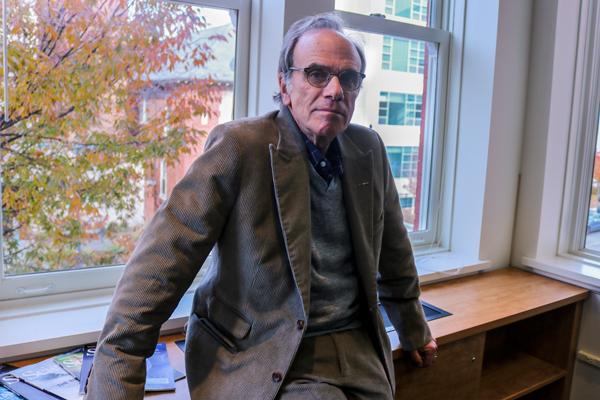The Graduate School of Education and Human Development is teaming up with a top education publication to consider how the new presidential administration will impact education policy.
Policymakers, analysts, GW faculty and Education Week journalists will examine how the election results will impact public education policy from the White House and Congress down to the state and local levels on Thursday in the Jack Morton Auditorium. The booked speakers said the event will bring together leaders to discuss the future of education and how they can help shape education policy.
Michael Feuer, the dean of GSEHD, said in an email that Education Week reached out to GSEHD earlier this fall about co-hosting a post-election event. Feuer said the publication has hosted similar programs in the past and thought GSHED would be an ideal institution to partner with because of the school’s education policy expertise and proximity to the White House.
“We are excited to host such an important conversation on campus about the implications of the new administration on the future of education in this country,” he said.
Feuer said this event will be a conversation about the future of Pre-K–12 education with “some of the most informed minds,” that will be particularly important because the national education agenda is likely to change.
President-elect Donald Trump and Secretary of Education nominee Betsy DeVos have both emphasized school choice, voucher programs and charter schools as high priorities, Feuer said. He said that practitioners and policymakers want to know what these policies mean for the future of public education, especially in schools with students with high poverty rates, and how they should prepare to respond.
“GSEHD students, faculty and staff, in addition to the wider education community, are anxious to learn what the Trump presidency may mean for students, families, teachers, administrators, policy makers, advocacy groups, legislators, researchers and other education stakeholders over the next four years,” Feuer said.
Policymakers at the event will address the Every Student Succeeds Act, which was signed by President Barack Obama last year, and the act’s implications for students and teachers. ESSA reauthorizes the 50-year-old Elementary and Secondary Education Act, the nation’s education law affirming its commitment to equal opportunity for students.
Presidents typically pass significant legislation on education during their terms: President George W. Bush signed No Child Left Behind into law, Obama oversaw the implementation of Common Core and the ESSA, and experts have said that Trump could potentially privatize education funding.
Michele Givens, the president and CEO of Editorial Projects in Education, the publisher of Education Week, who will be speaking at the event, said in an email that a new Trump administration will likely to introduce changes in federal education policy.
She said that DeVos has been a strong advocate for K-12 school choice and advisers for the new administration have signaled they plan to take a “less-aggressive stance” on civil rights issues and education, which could have implications on special education and school discipline policies.
New leaders at the state level, including governors and state school chiefs, will be coming into office when the ESSA gives states more decision-making authority, Givens said.
“It’s important at a time like this, when we have elected leaders with different philosophies and when there is a lot of uncertainty, to be able to turn to independent and informed sources of information about what’s happening and what it means,” Givens said.
Maria Voles Ferguson, the executive director of the Center on Education Policy at GW who will moderate a conversation among state and federal officials on the shifting education policy landscape at the event, said they will discuss what a Trump administration means for education, how state and local school districts will react to new policies, his choice for education secretary and what the ESSA means going forward.
“It is always a good time to get smart people together to talk about different issues and think about the different ways this may play out and give people the opportunity to speak their minds and engage in a reasonable conversation about what would be positive steps moving forward, instead of just screaming and yelling at each other on Twitter,” Ferguson said.
Sasha Pudelski, the assistant director of policy and advocacy at the School Superintendents Association, who is speaking at the event, said this event will be an analysis of what people speculate will happen. She said that both Trump and DeVos have expressed interest in privatizing public education funding, which will likely be a topic of conversation.
“He hasn’t said much about anything else,” Pudelski said. “So that is what we understand to be his priority and given his secretarial choice it seems like that is the only thing she has experience working on.”
Colin Green, an associate professor of curriculum and pedagogy at GSEHD, said that in his class, which is focused on the foundation of U.S. public education, he plans to discuss DeVos’ appointment. Green said that he will attend the event and has invited his students.
“Certainly professors who have students in their class who are going to be future teachers, or future administrators or future policymakers, either at the local state or national level, these are in fact the very students that we ought to be having conversations with about what the education policy landscape may look like over the next four years,” Green said.








